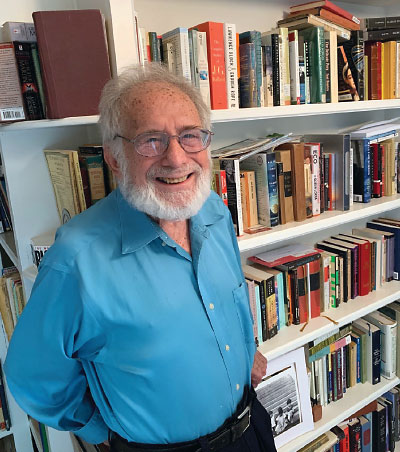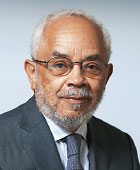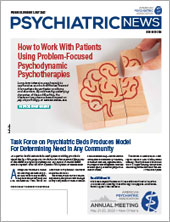In 1974, I was introduced to Dr. Gabriel Koz. He had been director of the Department of Psychiatry at New York City’s Lincoln Hospital since November 1969. When we met, I was a first-year resident in psychiatry, unsure of the department’s history and ignorant of Dr. Koz’s place in it. When I finished training in 1977, I went off to join the faculty at Yale. Dr. Koz left the same year to head the Manhattan Psychiatric Center, a major facility in New York state’s constellation of psychiatric hospitals. After his distinctive and successful stint at Lincoln, he was known in the arena of psychiatric hospital administration. We lost contact for decades and then reestablished our connection in 2005 at a lecture he delivered on receiving APA’s Administrative Psychiatry Award. Our common Lincoln experience certainly gave us much to discuss. At the top of the list were our memories of Lincoln Hospital and what we had learned from our stay in the famous New York City neighborhood known as the South Bronx.
In this predominantly Latino and Black neighborhood, I was studying psychiatry while observing the interaction of class, race, and poverty. I was an immigrant from Barbados. Dr. Koz had arrived at Lincoln from South Africa by way of London and Boston, two cities where he had done his psychiatry training. He had also spent time in Israel, and I had lived in France. We brought an international perspective to the struggles all around us. His medical degree was from the University of the Witwatersrand in South Africa. My medical training had taken place at the University of Strasbourg in France. We had come to know each other in the South Bronx at a time when community psychiatry was enjoying remarkable popularity. The late 1960s, of course, was the era of civil rights militancy. The mood was spreading to related domains of health, education, justice, housing, and transportation.
Dr. Koz memorialized his years at Lincoln, as well as his life story, in his 2021 autobiography, Made in South Africa: A Psychiatrist’s Journey (The Dietz Press). He explained that Lincoln Hospital had an 1839 start somewhere in Manhattan, occupying several locations before moving to the South Bronx in 1899. In November 1963, the New York City Health and Hospitals Corporation contracted with the Albert Einstein College of Medicine to provide mental health services at Lincoln Hospital. Coalitions of medical schools and public hospitals were regularly created to upgrade medical services delivered to communities. The White professionals assigned to Lincoln by Einstein gradually encountered significant opposition from Black and Latino staff and community activists. Buoyed by the national civil rights protests in progress, the local militants demanded greater community influence and even control of health care services. A major strike occurred in March 1969, and an unsettling result of these conditions was repeated changes in the leadership of Lincoln’s Department of Psychiatry. In his narrative, Dr. Koz noted the psychiatry program was in chaos and near collapse when he arrived in November of that year as the new director.
In 1973, S. R. Kaplan and M. Roman described these events in The Organization and Delivery of Mental Health Services in the Ghetto: The Lincoln Hospital Experience (New York, Praeger). The events at Lincoln had become a case history for study by community psychiatrists, administrators, and politicians in the United States. In a subsequent review of the book in Psychiatric Services in July 1974, Dr. Lucy Ozarin stated that Black and Puerto Rican groups were vying for power in the community. Dr. Claudewell Thomas gave a different assessment. He noted in the American Journal of Public Health in August of that same year that the university system’s major preoccupation was giving accolades to its faculty, while other staff received little recognition and were left in dreariness. Opinions about what had transpired at Lincoln were legion.
In his narrative, Dr. Koz confronted the tensions and problems he had faced at Lincoln with a certain equanimity. He recognized the restlessness of a divided community, fueled by the clash of ethnicities; the anti-Vietnam War sentiments; the presence of civil rights furor; neighborhood crime; rampant substance use; and poverty. There were also the structural dilemmas provoked and exacerbated by several bureaucracies: city, state, and federal in addition to university and medical school. Nevertheless, his tenure at Lincoln Hospital had been exciting, and he had stabilized the department.
I, too, left Lincoln with indelible memories. It was there that I first met and heard Chester Pierce deliver a lecture. The Saturday evening when a staff member took me to a séance of Puerto Rican Espiritismo remains a highlight of my excursions into psychiatry and religion. These memories remain next to my mind’s photograph of Gabriel Koz moving among the major cultures in the South Bronx displaying remarkable flexibility and dignity and representing reconciliation. ■


